Blog
Joy and Rigor in East Oakland Classrooms
Share
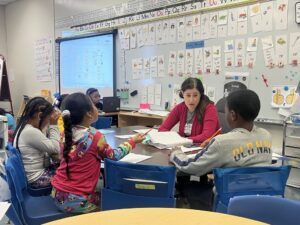
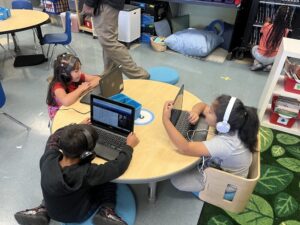
Skilled reading doesn’t develop naturally; it requires intentional, research-backed instruction. Across the country, including in Oakland, districts and states are making bold shifts in both curriculum and teaching methods, grounded in the science of reading research. Now, three years into implementing evidence-based literacy practices, we’re seeing promising results, with steady gains reflected in OUSD schools’ and Lighthouse Charter Public Schools’ student growth data. These early indicators underscore the impact of strategic, science-aligned instruction on student reading progress.
The Oakland Literacy Coalition, in partnership with FULCRUM and California Early Literacy Coalition (and with support from EdVoice), organized two school literacy learning walks designed to provide local and state policymakers firsthand insight into evidence-based instruction in Oakland classrooms on October 29, 2024.
Korematsu Discovery Academy
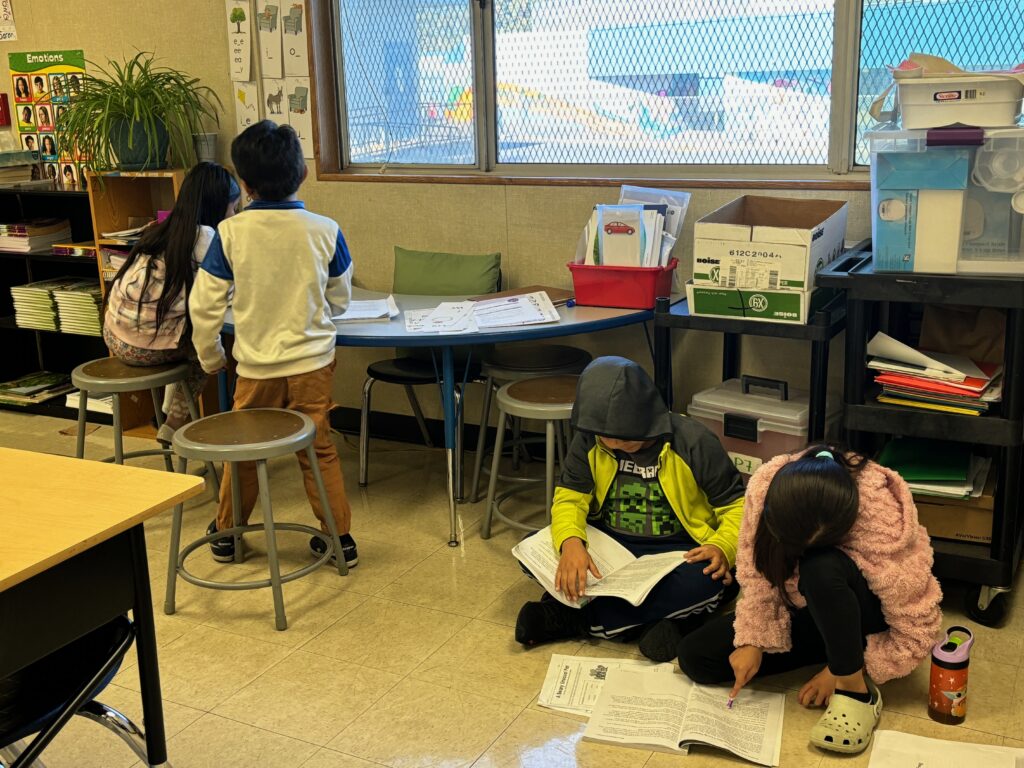
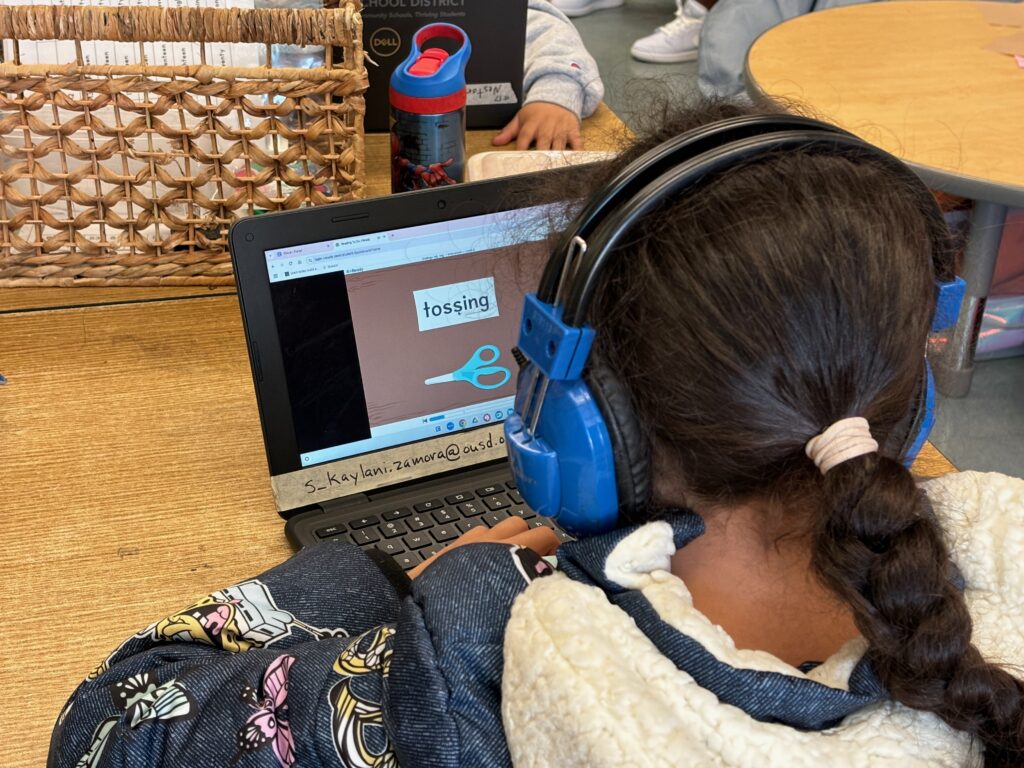
We started the morning at Korematsu Discovery Academy (KDA) in East Oakland.
Amie Akuma, the principal at KDA for nine years, shared a presentation of the school context and demographics, literacy implementation journey, and student data snapshot. KDA has 183 students, 99.5% qualifying for free or reduced lunch, and 42% are English language learners. The school implements evidence-based literacy, including Literacy Liberators/early reading tutors using SIPPS and Ignite for tutoring. Principal Akuma shared 60% of students made at least one year’s progress on the i-Ready assessment which is significant growth. She shared some of the key challenges, including:
- a high non-stability rate, with over 25% of students not spending a full school year at the school
- a high percentage of students with IEPs (29% compared to district average of 17.1%)
- limited professional development time
What we observed:
Three groups of 5-6 adults, including reporters, a school board member, County Office of Education staff, a state legislator, and legislative staff had the opportunity to observe four different classrooms across all grade levels to better understand what word recognition and language comprehension teaching and learning looks like, followed by a debrief and discussion with school and district leadership.
“From the literacy-rich, playful learning in transitional kindergarten (TK) to the fast-paced, engaging SIPPS routines in teacher- and tutor-led small group instruction, to intensive, individualized tutoring support on a tablet with a live mentor from Ignite, and finally to upper-grade science discussions and GLAD strategies that build academic vocabulary and content knowledge-it was inspiring to see what high-quality, strategically tiered instruction looks like schoolwide,” said Jen Bloom, OLC’s DIrector of Programs.
Key takeaways:
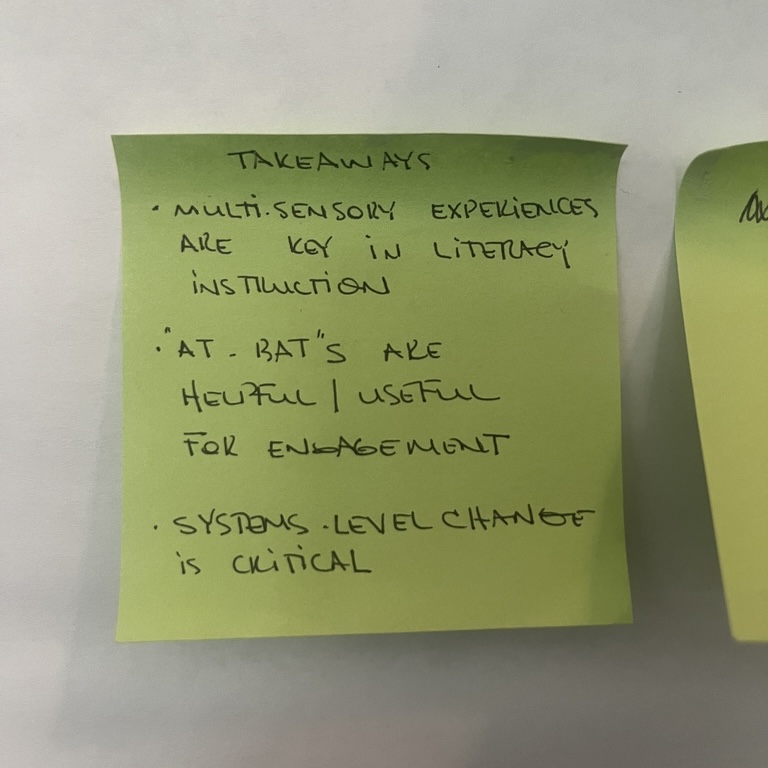
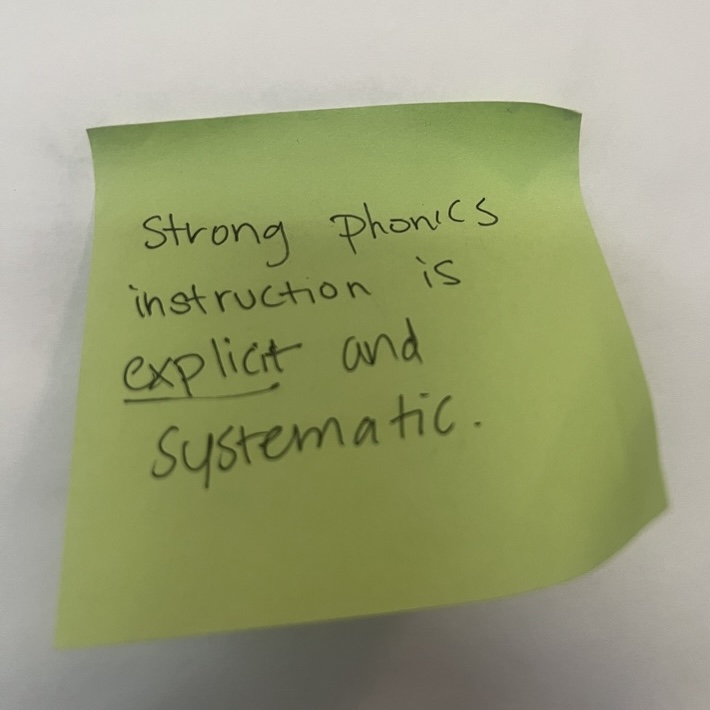
The work of robust literacy implementation is complex and requires an incredibly skilled literacy leader who can strategically plan the master calendar to ensure there is structured, targeted support for every student that needs intervention support, and this schedule is regularly changing based on student growth and changing needs.
Along with ongoing progress monitoring, there needs to be weekly communication and capacity-building support for teachers and tutors from the school-based and central office coaches.

From a district perspective, Network 2 Superintendent Dr. Sabrina “Bri” Moore shared the value of leaders who are learners. Setting expectations is a huge piece of the work, she said, but before we make the expectation non-negotiable, principals, coaches, and other school leaders need to fully learn it.
“Before I took this job, principals were just saying ‘this is the expectation, because the district told us, without fully learning,'” she said. “So we took a step back. Everybody needs to learn it. Every principal needs to learn. Every coach needs to learn it. And then there’s a system-wide coherent expectation; it’s a non-negotiable.”
Oakland Board of Education President Sam Davis shared his appreciation for joining the learning walk and debrief:
“I’m so tired of School Board meeting after School Board meeting having to talk only about budget adjustments and austerity—while I know these are essential tasks, I wish we as a Board could pivot to talk about student outcomes and instructional strategies. What I saw belied the stereotype that this is a ‘back to basics’ drill-and-kill approach. Students were experiencing the joy of learning to read, whether it was TK students fascinated with their teacher’s phonemic awareness games, 2nd graders writing about their dreams, or 5th graders summarizing a story in chronological order The TK teacher created a safe space for students to make mistakes and celebrate correct answers, helping each other to learn. Sometimes a mistake shows that you are really engaging with meaning—I saw a fifth grader copy ‘excluding’ as ‘disincluding’ showing that she was reading for understanding, not copying blindly. And while I was studying the 2nd graders’ writing, one came up excitedly to point out which one was his. The story photographed here is about a dream of the death of the dinosaurs—correcting the invented spelling, it reads, “66,000 years ago a comet hit Earth and they died, and that was the dinosaurs, and that was a dream.”
Sam Davis thanked Assemblymember Al Muratsuchi, chair of the state Assembly Education Committee, for coming to Oakland to join the classroom visits. “I hope the Assembly will choose a carrot (not a stick) approach to incentivizing the use of evidence-based practices in early literacy instruction,” he said.
Lighthouse Community Charter School
Eighteen visitors arrived at Lighthouse Community Charter School for the 2nd literacy learning walk, including Assemblymember and Education Chair Muratsuchi and his Director of Staff, staff members from Asm. Blanca Rubio’s office, Tanya Lieberman, Chief Consultant, CA Assembly Education Committee, Brian Brennan from 21st Century Alliance, Edvoice, FULCRUM, and OLC staff.
Lighthouse Principal Shania Hurley welcomed guests and shared the school context. Lighthouse Community Public Schools(LCPS) is a network of two K-12 charter schools in east Oakland serving 97% students of color, over 50% English language learners, and 15% students qualifying for special education. Shaina shared how their literacy program has evolved and the transition from balanced literacy to structured literacy began pre-COVID. There is an emphasis on accessing grade-level texts for all students, dedicated foundational skills block, small ground instruction, designated English Language Development instruction, and reading intervention supports for all classes.
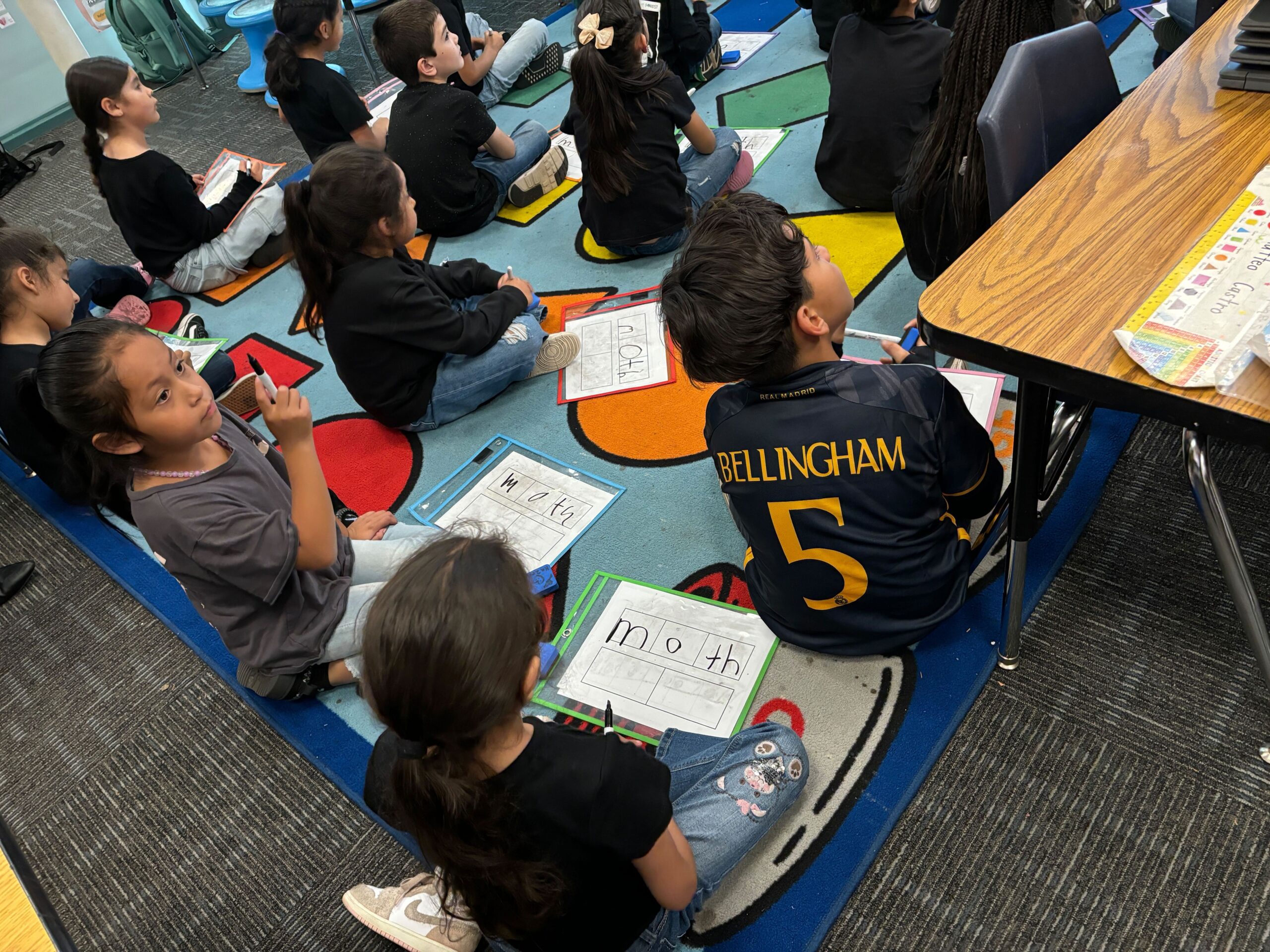
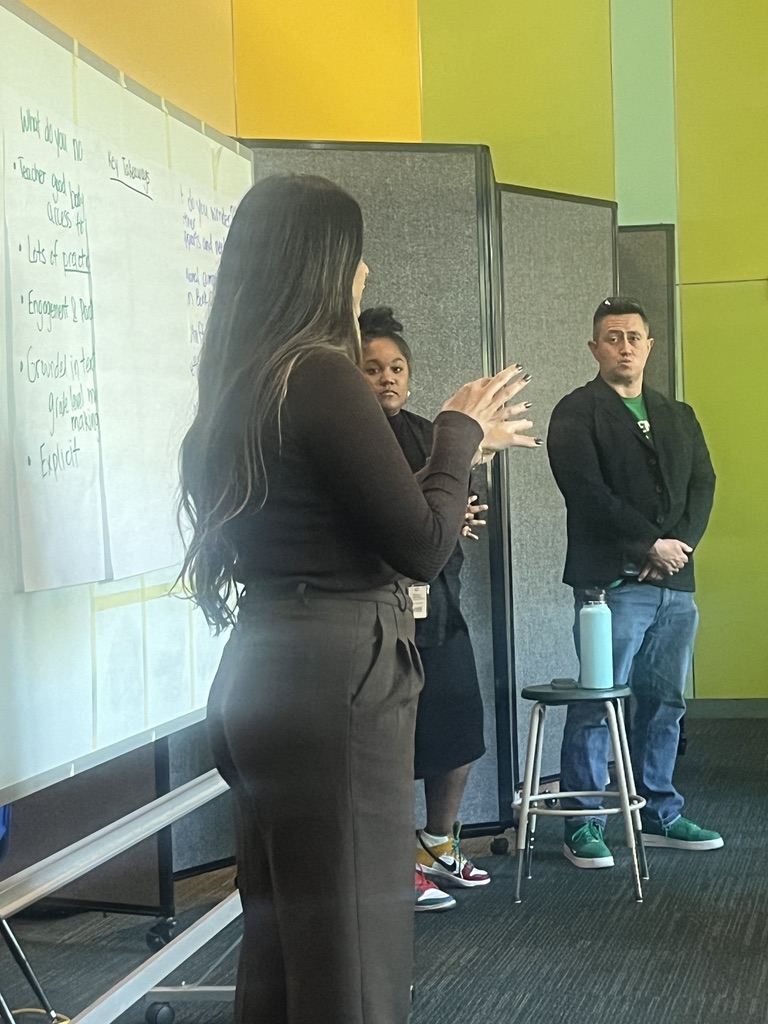
Devika Sood, Director of Program at Fulcrum Literacy, prepared visitors for classroom observations, encouraging us to look for explicit phonics instruction in some rooms, and in others, the use of rich grade-level texts to build background knowledge and comprehension.
Guests observed two classrooms at Lighthouse, one foundational skills block and one language comprehension with a debrief of each observation in between.
In the first-grade classroom observed, students eagerly gathered their dry-erase boards and markers, moving quickly to the rug for a whole-group sound-spelling routine. It was clear that the blending and spelling routine was well-practiced, as students confidently participated in each step. The teacher engaged the entire class, calling on the whole group, one row at a time, and individual students for responses. This fast-paced routine, offering many “at bats” for students to practice the targeted skill, kept everyone focused and engaged.
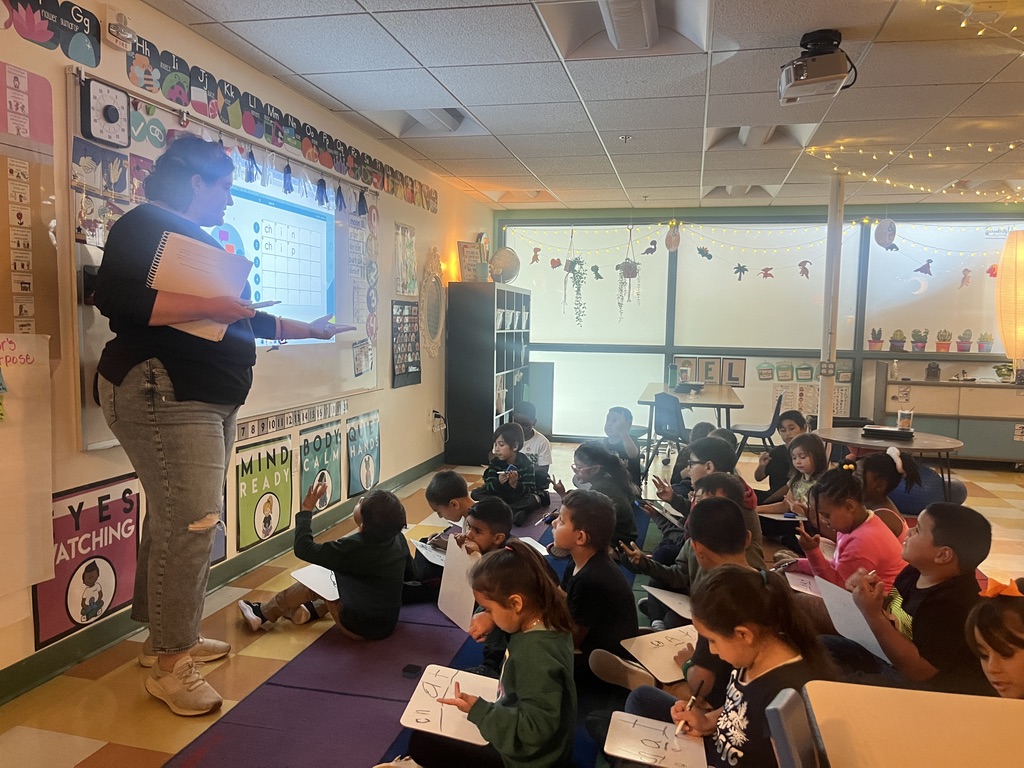
In one 5th-grade classroom we observed, students were drafting introductory paragraphs as part of their reflections on Esperanza Rising, a historical fiction novel by Pam Muñoz Ryan. Each student was focused on their tablet, following the structure outlined on a Literary Essay Anchor Chart, while the teacher and assistant moved around the room, conferring individually with students.
Lighthouse is prioritizing the foundational skills block and is currently piloting different curricula as the staff gears up for a curriculum adoption process in the spring of 2025. They increased teacher prep time and introduced literacy coaching support.



